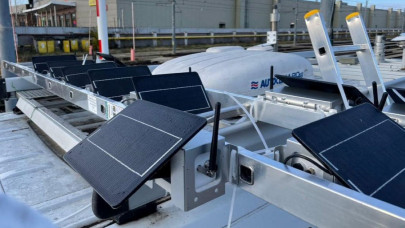At the same time, a conditionality from the National Recovery and Resilience Plan (PNRR) is fulfilled for projects in the transport, energy, and agriculture sectors and for other projects included in the Renovation Wave component of the PNRR.
Directive (EU) 2016/2284 on the reduction of national emissions of certain atmospheric pollutants (NEC Directive) establishes for Romania and for each Member State, commitments to reduce emissions of certain atmospheric pollutants (sulfur dioxide -SO2, nitrogen oxides - NOx, ammonia- NH3, non-methane volatile organic compounds - VOCnm and fine particles in suspension - PM2.5), which affect human health and the environment, with 2020 and 2030 respectively as target years.
"This National Air Pollution Control Program is an extremely important step towards solving the environmental problems facing our country and a sustained approach to classifying the air quality infringement procedure. I congratulate all colleagues who worked and contributed to the achievement of this goal. Romania's compliance with emission reduction commitments is an ambitious objective, especially with regard to the reduction of PM2.5, NOx and VOC emissions, which have as their main source of heating in the residential sector and traffic in large urban agglomerations. By approving this plan, we fulfil our obligations assumed at the European level and can act much more effectively to improve air quality", declared the Minister of Environment, Water and Forests, Barna Tánczos.
At the same time, in order to meet the requirements to reduce emissions and contribute effectively to the achievement of the European Union's air quality objectives, the NEC Directive established the obligation for Member States to develop, adopt and implement a National Control Program of Atmospheric Pollution (PNCPA), with the deadline for reporting to the European Commission, April 1, 2019.
According to the minimum requirements set out in the NEC Directive, the PNCPA must establish air quality policy priorities, in correlation with policy priorities, plans and programs established in other relevant policy areas, by identifying/adopting and implementing measures to reduce pollutant emissions atmospheric applicable to all relevant sectors of activity that constitute sources of atmospheric pollutant emissions such as: agriculture, energy, industry, road transport, residential heating, use of internal combustion engines for non-road mobile equipment and use of solvents, etc.
Within this draft normative act regarding the approval of the PNCPA, details are presented regarding the individual policies and measures or the packages of policies and measures selected for adoption, the responsible competent authorities and the indicators for monitoring progress, as well as cost and benefit estimates related to each policy and measure in part or of the packages of policies and measures considered for the fulfilment of the reduction commitments.
The development of the PNCPA took into account the impact of plans and programs adopted or planned to be implemented under climate and energy obligations or other related policies (e.g. development of transport infrastructure, industrial processes and agriculture) that could have an impact positive or negative on compliance with national commitments to reduce air pollutant emissions.
According to Law no. 293/2018 on the reduction of national emissions of certain atmospheric pollutants transposing the NEC Directive, the responsible authorities appointed to fulfil the obligation to develop, adopt and implement the PNCPA, are the central public authority for environmental protection, respectively the Ministry of the Environment, Waters and Forests, in collaboration with central public authorities with responsibilities in the fields of: economy, energy, health, transport, agriculture and rural development, regional development and public administration, and according to art. 11 paragraph (2) from Law no. 293/2018, PNCPA is adopted by Government decision, upon the proposal of the central public authority for environmental protection.














